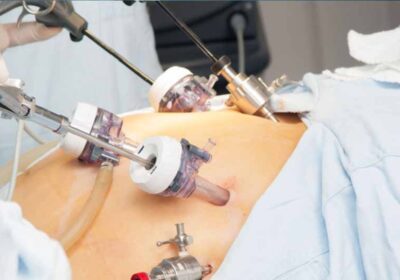
What Medical Tests You Have to Go Through Before Bariatric Surgery?
Bariatric surgery is a big step for patients struggling with obesity and its related health complications. If you are contemplating this life-changing procedure, it is crucial to understand the medical tests involved in the process to ensure the best possible outcome. This article aims to inform healthcare providers about the various medical tests a patient might have to undergo before bariatric surgery.
1. Blood Tests and Laboratory Analysis
One of the first steps in the preoperative process is conducting blood tests and laboratory analysis to assess the patient’s general health. These tests include a comprehensive metabolic panel, a complete blood count, and blood clotting profiles. Additionally, tests may be performed to assess vitamin and mineral levels, lipid profile, and thyroid function. Abnormalities detected in these tests might necessitate further investigation before moving forward with surgery.
2. Pulmonary Function Tests
Pulmonary function tests evaluate lung function and help identify any respiratory disorders, such as obstructive sleep apnea, chronic obstructive pulmonary disease (COPD), or asthma. Sleep studies might also be recommended for patients with suspected sleep apnea. Properly addressing these issues preoperatively can help minimize postoperative complications and improve long-term outcomes.
3. Cardiac Evaluation
A thorough cardiac assessment is essential for patients with a history of heart disease, hypertension or those who present symptoms such as shortness of breath, chest pain, or palpitations. This evaluation might include an electrocardiogram (EKG), echocardiogram, and a stress test. A consultation with a cardiologist may also be necessary to determine the patient’s cardiovascular risk and to optimize their condition before surgery.
4. Gastrointestinal Evaluation
Before bariatric surgery, patients may undergo an upper gastrointestinal tract evaluation, including an upper endoscopy (EGD) or an esophagram. These tests help identify issues such as esophagitis, gastritis, or hiatal hernias, which may require treatment before surgery. Consult an experienced weight loss surgeon in Baltimore who can guide you through the process and provide comprehensive care.
5. Nutritional Assessments
A vital component of the preoperative evaluation for bariatric surgery is a nutritional assessment. A registered dietitian will review the patient’s dietary habits, teach them about postoperative dietary guidelines, and help establish healthy eating patterns crucial for long-term weight loss success.
6. Psychological Assessments
Psychological assessment is another essential aspect of the preoperative process, as mental and emotional readiness is crucial for the surgery’s success. A mental health professional will evaluate the patient’s coping mechanisms, support networks, and expectations of the surgery.
Preparing for Bariatric Surgery
It is crucial for patients to take the necessary steps in preparing for their weight loss surgery. This involves following the recommended dietary guidelines, engaging in regular physical activity, and attending support groups or counseling sessions to address any emotional or psychological concerns. Furthermore, it is also essential to be informed on how to prepare for weight loss surgery and what to expect after the procedure.
Another important aspect is knowing the difference between weight loss medication and surgery to make an informed decision. Bariatric surgery requires a significant commitment from the patient, and being well-informed and prepared can greatly improve their chances of success.
Conclusion
Bariatric surgery is a complex and life-changing procedure that requires careful evaluation and preparation. Understanding the various medical tests involved in the preoperative process can help healthcare providers ensure that their patients are adequately prepared for bariatric surgery, leading to improved outcomes and long-term success. By working with a multidisciplinary team, patients can overcome potential barriers and achieve their weight loss goals.
















